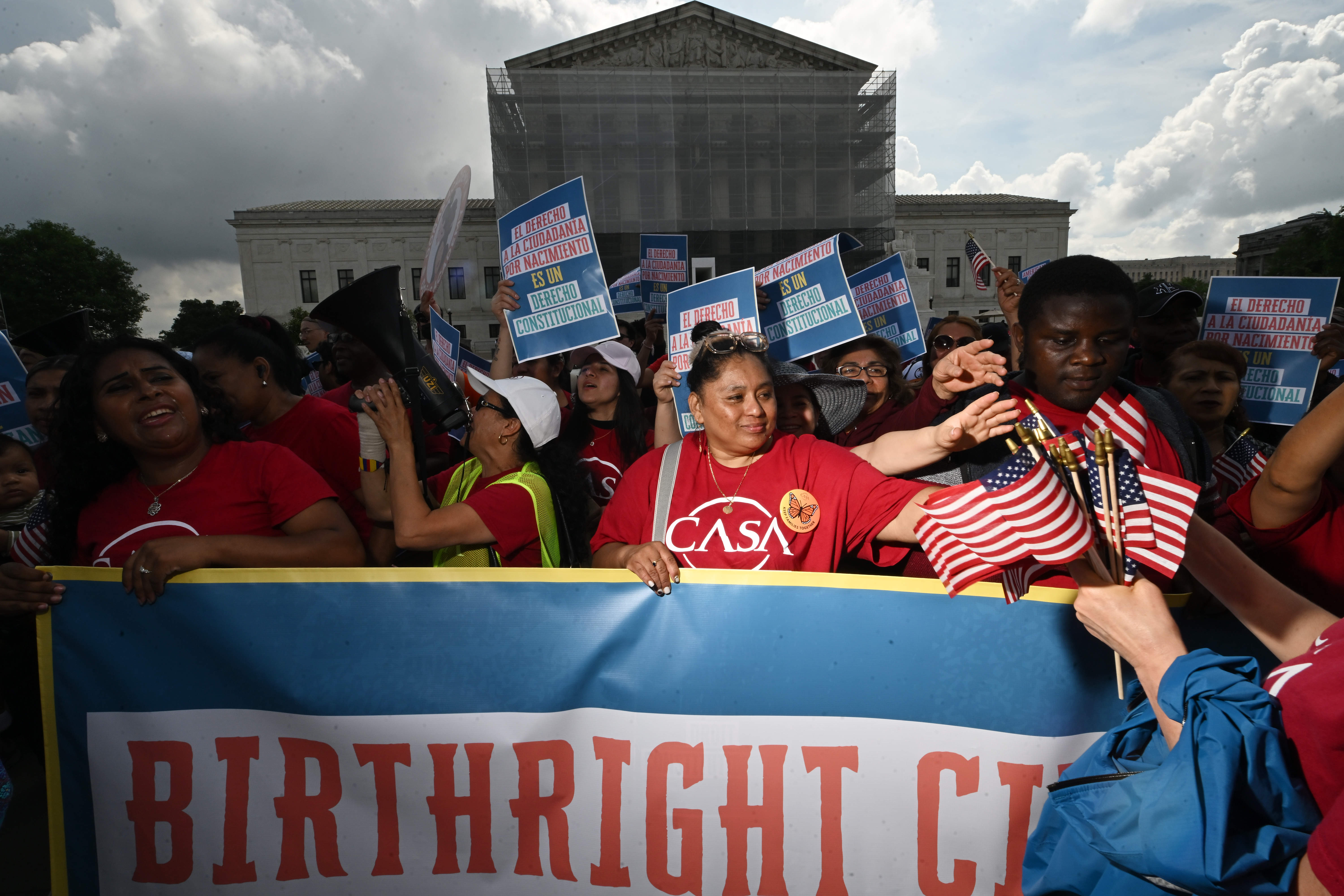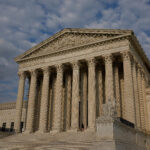
The Supreme Court on Friday (June 27, 2025) backed President Donald Trump’s request to scale back nationwide orders that have for months blocked the administration’s ban on automatic citizenship for the U.S.-born babies of undocumented immigrants and foreign visitors, a signature piece of Trump’s efforts to restrict immigration.
The 6-3 decision, with the liberal justices dissenting, sends the cases back to the lower courts to determine the practical implications of the ruling and leaves open a path for challengers to try to continue to block the president’s policy.
The justices were not directly addressing the constitutionality of the president’s birthright citizenship order, which opponents say conflicts with the 14th Amendment, past court rulings and the nation’s history.
Instead, the Trump administration had asked the justices to limit the scope of orders imposed by three lower-court judges that blocked his policy from taking effect nationwide while its legality is tested in court.
Writing for the majority, Justice Amy Coney Barrett said such universal injunctions likely exceed the power that Congress has granted to the federal courts.
“Some say that the universal injunction ‘give[s] the Judiciary a powerful tool to check the Executive Branch,’” Barrett wrote. “But federal courts do not exercise general oversight of the Executive Branch; they resolve cases and controversies consistent with the authority Congress has given them. When a court concludes that the Executive Branch has acted unlawfully, the answer is not for the court to exceed its power, too.”
Justice Sonia Sotomayor read a lengthy summary of her dissent from the bench to emphasize her strong disagreement with the opinion, which she called a “travesty” and warned would “cause chaos for the families of all affected children.”
The ruling was one of six expected Friday, the final day of the Supreme Court term.
Presidents in both parties, members of Congress and several Supreme Court justices have long decried such nationwide injunctions for giving outsize power to individual judges to halt a president’s agenda. The broad orders temporarily block a policy or regulation while litigation is underway if a judge believes the action may be unconstitutional or that implementing it would cause immediate harm.
In the background of the debate over nationwide injunctions is the underlying question of whether Trump can legally deny automatic citizenship to babies born in the United States when neither parent is a citizen or a permanent legal resident.
The ban is just one of the Trump administration’s initiatives to dramatically restrict illegal and legal immigration. Trump has barred the entry of travelers to the United States from more than a dozen countries and has taken steps to fast-track deportations of alleged gang members from Venezuela, suspend refugee admissions and remove legal protections for more than 530,000 migrants.
On his first day back in the White House, Trump signed an executive order to end automatic citizenship for the U.S.-born children of undocumented immigrants and foreign visitors. Twenty-two states and immigrant advocacy groups sued, saying the order conflicts with the Constitution and past court rulings.
The 14th Amendment, adopted after the Civil War, established citizenship for freed Black Americans as well as “all persons born or naturalized in the United States, and subject to the jurisdiction thereof.” The citizenship clause reversed the Supreme Court’s infamous decision in Dred Scott v. Sandford, which had denied citizenship to Black Americans.
Trump and his allies say they can ban birthright citizenship because unauthorized immigrants are in the country without permanent legal status and, therefore, are not “subject to the jurisdiction” of the U.S. government.
But most legal scholars, as well as the Democrat-led states and immigrant rights groups challenging the policy, say Trump’s argument would require a reinterpretation of the 14th Amendment – and conflicts with settled Supreme Court precedent that protects citizenship for most everyone born on U.S. soil, except for the children of foreign diplomats.
The Supreme Court upheld the guarantee of birthright citizenship in 1898, when it ruled that Wong Kim Ark, a child born in San Francisco, was a citizen even if his immigrant parents were “subjects of the Emperor of China.”



